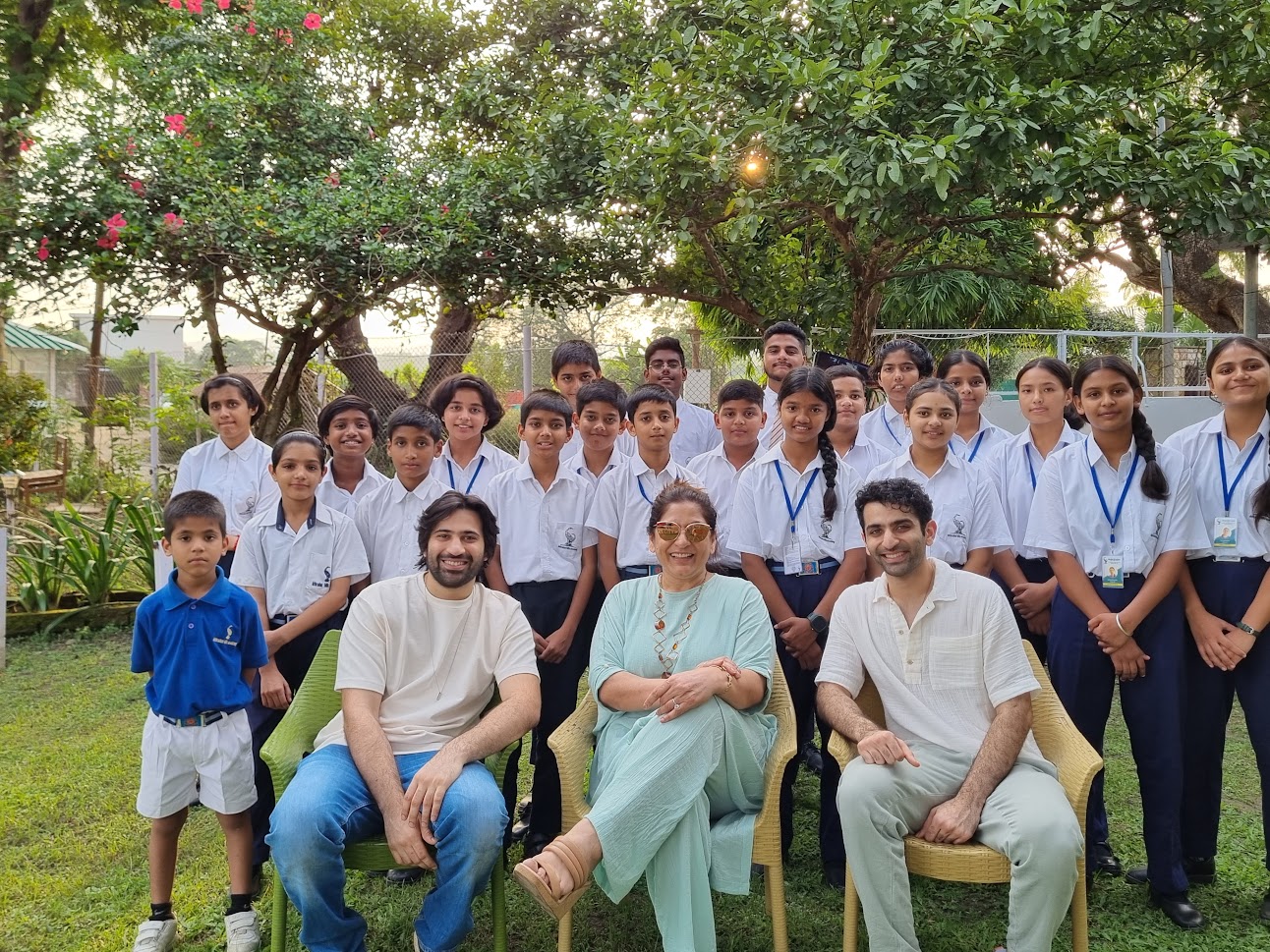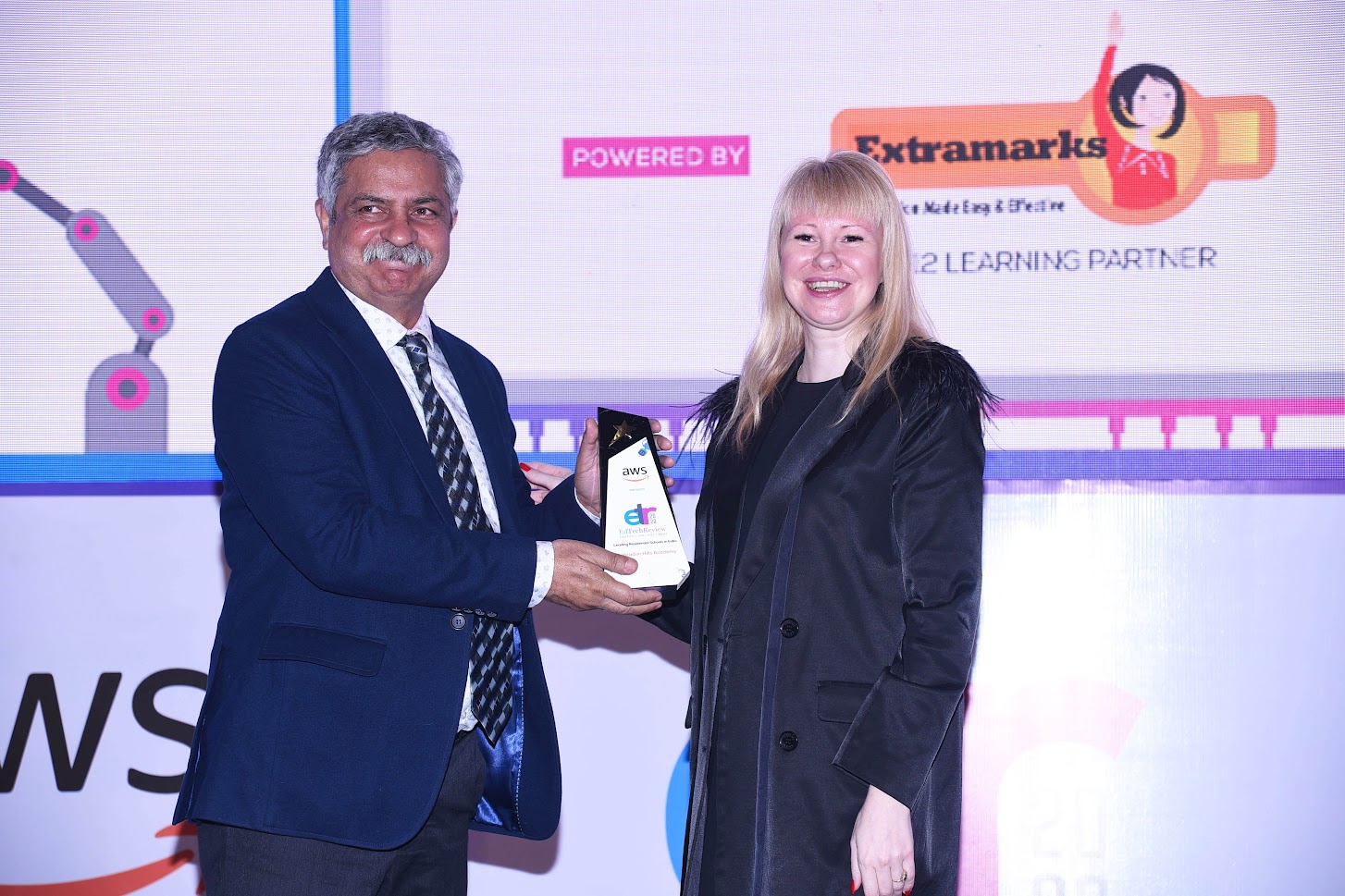From Challenge to Opportunity: Reshaping India's Educational Landscape
Every year, as the Head of the school and as the Director of Admissions, I meet many parents. Many of them are educated and successful in various fields, but what strikes me is that they often lack a clear understanding of what education truly entails.

As I pondered what to write, the state of our education system immediately came to mind. Inspired by various articles and a recent interview that watched Dr. Shashi Tharoor discussing Kerala's high literacy rate contrasted with its alarming unemployment rates, I felt compelled to delve into this topic. It's somewhat surprising, isn't it? We're often led to believe that literacy guarantees employment, but sadly, that's not always the case. This disparity forms the basis of my thoughts here.
Every year, as the Head of the school and as the Director of Admissions, I meet many parents. Many of them are educated and successful in various fields, but what strikes me is that they often lack a clear understanding of what education truly entails. Is it just about reading, writing, and scoring well in exams, or is there more to it? I firmly believe that education should be about making a meaningful impactand keeping pace with the demands of the 21st century.
India finds itself at a crucial juncture. Despite millions of young students entering the workforce annually, a concerning number lack the necessary skills for 21st-century jobs. Data suggests that half of the students passing out from colleges in India are ill-equipped to handle the demands of modern employment. This is by far a major cause of concern but sadly not being taken up with the same level of urgency as it should be. According to a 2020 UNICEF report, only 47% of young students in India acquire the right skills at the right time. Our syllabus is sadly out of date and hasn't evolved with time, and the same can be said for our assessment methods; we're still majorly obsessed with marks and scores.
Reflecting on my journey with ICARE INDIA, a youth organization I founded in 2009, I observed a persistent gap between what schools teach and what industries require. Even today, many students find themselves unprepared for the realities of the job market. It's a problem that persists despite efforts to address it over the years.
When I took charge of Dehradun Hills Academy (DDHA), one of the few things I had in mind was to offer something other than conventional academic and hobby classes despite facing the odds. I firmly believe there are more takers for the unconventional approach to learning, where the focus is more on adapting to the needs of the global industry than just being centered around a few prominent careers. At DDHA, we offer a variety of hobbies ranging from Podcasting, Video Editing, Social Media Management, Gardening, Baking, and Cooking, to Business Management cum Entrepreneurship classes, among others.
Our curriculum is built upon giving students a first-hand experience of managing various programs and events, and being able to resolve basic conflicts among peers. This includes tasks like making their timetables and resolving issues with others, encouraging them to take responsibility for their actions. Above all, we emphasize traits such as patience, compassion, and truthfulness, which are ingrained in all our students and are central to our educational philosophy.
The next question that arises often is about the National Education Policy (NEP). For those unfamiliar, NEP is the latest policy introduced by the Government of India, aiming to overhaul various aspects of our education system in line with global demands. It proposes a structural shift in our academic framework, emphasizing more objective-type questions, focusing on conceptual understanding rather than rote learning, and enhancing vocational learning opportunities. This signifies a refreshing approach, yet it's essential to acknowledge that no single policy can address all challenges in the education sector. Progress is an ongoing endeavor.
It's imperative for all stakeholders must recognize the significance of NEP and not merely await governmental action. As schools, colleges, universities, and industries, we must take proactive measures to streamline the transition for students from academia to industry, ensuring its meaningfulness. This necessitates collective effort in implementing NEP's objectives effectively.
I've long championed holistic education, a concept gaining traction in recent years. It emphasizes nurturing students' overall development beyond academics alone. While we've made strides in this direction, there's still much work to be done. I advocate for granting more autonomy to schools. We have no shortage of talent in our country, but we somehow do not give it the complete ecosystem to nurture and flourish. Why can't we invite the brightest minds to help work with schools, which is far more important and the need of the hour as opposed to colleges or universities, for it is the schools who help nurture the student for 18 years of his life ?

I also strongly feel that social media can be a powerful tool to promote the importance of skill development. Influencers, in particular, can play a significant role in sharing the message of upskilling our workforce. By leveraging their platforms and influence, they can reach a wide audience and advocate for the value of acquiring new skills.
This way, the demand from schools will gradually shift from solely providing academic studies and hobbies to also prioritizing skill development. Additionally, the government can invest significantly in creating a narrative around skill development and offer various incentive-based opportunities to stakeholders. This concerted effort will fuel the sector's growth and drive it further forward, fostering a collaborative environment where everyone works together for the country's advancement.
Each year, we witness a significant number of students pursuing higher education abroad. While a select few aim for Ivy League and prestigious institutions, many simply seek better work opportunities for their future careers. It begs the question: why can't we capitalize on this trend and have our universities offer comparable opportunities at a fraction of the cost? Ashoka University is a step in the right direction. Similarly, we have Master's Union, which offers something unique for business students. However, there is room for many more to break the shackles and offer a curriculum that can stand up to the West and offer something far better and more tailored to our Indian market coz after all India is where everyone wants to be.
This initiative would not only help retain our brightest students in the country but also make economic sense. Annually, our students spend close to 30-35 billion US dollars on studying abroad. Redirecting a substantial portion of this expenditure back into our educational system could have profound benefits.
However, for this to materialize, our colleges and universities must assert themselves on a global scale. They need to offer competitive programs and opportunities that rival those available abroad, thereby enticing students to stay and study domestically.
In the end, all we need to do is get everyone aligned towards a common goal of prioritizing our education sector. I hope whoever becomes our Prime Minister next takes on this challenge head-on and drives India to be a developed nation in the year 2047, and that cannot remotely happen without upgrading our education system at a faster pace.
200*7
About the Author:
Meet Mr. Yudhishter Puran Singh, an esteemed educationist and Managing Director of Dehradun Hills Academy (DDHA), a renowned Boutique Residential School. A distinguished alumnus of Dehradun Hills Academy and Mithibai Motiram Kundnani College, Mumbai, Mr. Singh is celebrated for his unwavering commitment to education and youth development. As the visionary leader behind icare-India and the Editor of "Expressions," a pioneering Environment e-magazine, he has championed environmental awareness and educational innovation. Recognized as one of the Top 100 United Nations Young Change-Makers and honored with the Guru Rabindranath Tagore Samman Award, Mr. Singh's transformative initiatives have earned him widespread acclaim. His leadership has propelled DDHA to remarkable heights, earning prestigious accolades such as Category A ranking by CBSE and recognition as the No. 1 school in Uttarakhand for Holistic Education. Mr. Singh's dedication continues to shape DDHA as a beacon of educational excellence.










